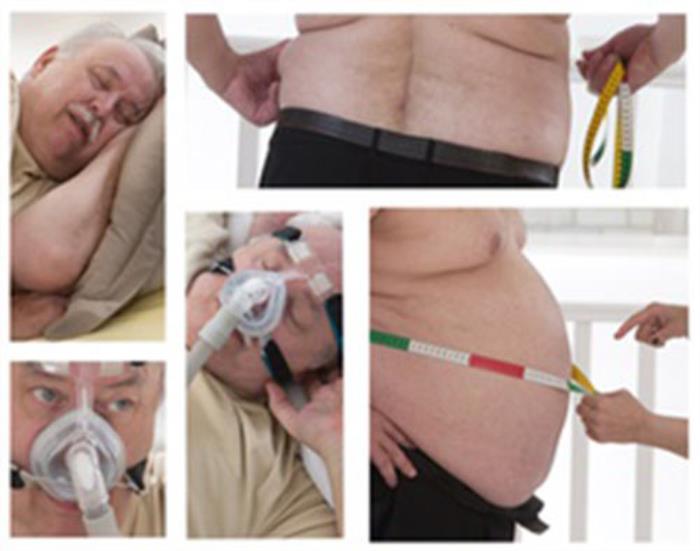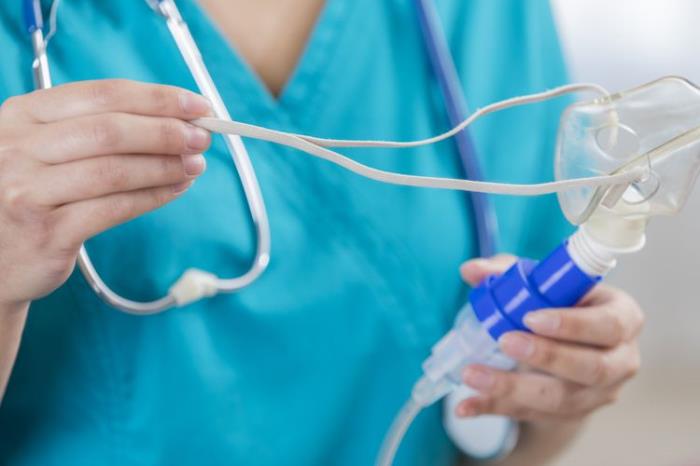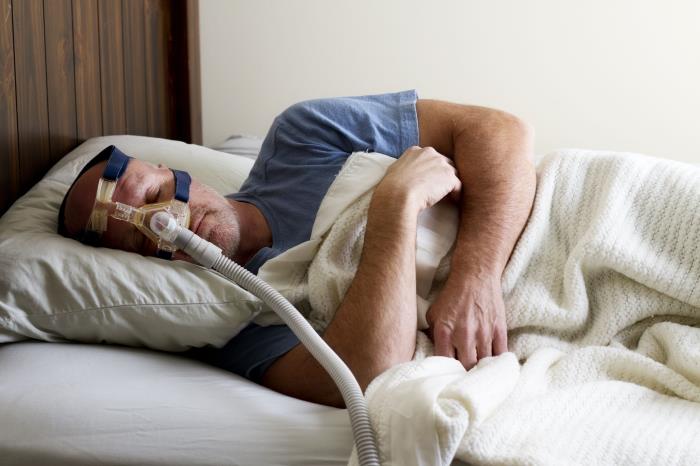Sleep apnea is a common yet serious sleep disorder that affects breathing patterns during sleep, leading to disrupted rest and other health complications. For individuals struggling with obesity, sleep apnea is a frequent concern due to excess weight contributing to airway obstruction. Biliopancreatic Diversion with Duodenal Switch (BPD/DS) surgery, a type of bariatric surgery, offers a potential solution for managing obesity and, by extension, alleviating sleep apnea symptoms. This article explores how the two are connected and how BPD/DS can play a role in improving both weight and sleep health.
What is Sleep Apnea and How Does It Affect Health?
Sleep apnea is characterized by repeated interruptions in breathing during sleep, often caused by an obstruction of the airway. These pauses can last from a few seconds to minutes, leading to poor sleep quality and decreased oxygen levels in the body.
Over time, sleep apnea can contribute to serious health issues such as high blood pressure, heart disease, stroke, and daytime fatigue. Left untreated, it can also impair cognitive function and increase the risk of accidents due to drowsiness and lack of focus during the day.
The Link Between Obesity and Sleep Apnea
Obesity is a major risk factor for sleep apnea, as excess fat around the neck and upper body can constrict the airway, making it more likely to collapse during sleep. The additional weight on the chest can also increase pressure on the lungs, further restricting airflow. As a result, individuals with a higher body mass index (BMI) are more prone to developing sleep apnea.

This condition creates a vicious cycle, as poor sleep can hinder weight loss efforts and exacerbate other obesity-related health issues. Addressing the underlying cause—obesity—is key to mitigating sleep apnea.
Understanding Biliopancreatic Diversion with Duodenal Switch (BPD/DS) Surgery
Biliopancreatic Diversion with Duodenal Switch (BPD/DS) is a bariatric surgery that combines restrictive and malabsorptive elements to facilitate significant weight loss. By reducing the size of the stomach and rerouting a portion of the small intestine, BPD/DS limits both food intake and the absorption of calories and nutrients.
This surgery is typically recommended for individuals with severe obesity, particularly those with obesity-related conditions like Type 2 diabetes and sleep apnea. BPD/DS has been shown to result in substantial long-term weight loss, which can have a profound impact on overall health and quality of life.
How BPD/DS Surgery Can Help with Sleep Apnea
BPD/DS surgery can significantly improve or even resolve sleep apnea by targeting its root cause—excess weight. As patients lose a substantial amount of body fat following the surgery, the pressure on the airway and lungs is reduced, leading to fewer breathing interruptions during sleep.

Many individuals experience an improvement in their sleep apnea symptoms as early as a few months post-surgery. Moreover, by addressing obesity through BPD/DS, patients often experience better sleep quality, increased energy levels, and a reduced reliance on devices like CPAP machines for managing sleep apnea.
Weight Loss After BPD/DS and Its Impact on Sleep Apnea
Biliopancreatic Diversion with Duodenal Switch (BPD/DS) can significantly reduce the symptoms of sleep apnea by promoting substantial weight loss. Excess weight, particularly around the neck and throat, is a primary contributor to obstructive sleep apnea (OSA). As patients lose weight after BPD/DS surgery, the pressure on the airways decreases, often leading to fewer episodes of apnea and improved breathing during sleep.
Improved Breathing and Oxygen Levels Post-Surgery
Weight loss after BPD/DS not only reduces the severity of sleep apnea but also improves overall respiratory function. As fat tissue decreases, so does the restriction on the lungs, leading to improved airflow and oxygen levels during sleep. This can result in more restful, uninterrupted sleep and a higher quality of life.

How Hormonal Changes After BPD/DS Affect Sleep Quality
BPD/DS surgery triggers changes in hormones, including those that regulate sleep. The reduction in insulin resistance and improvement in metabolic function can lead to better sleep quality. Additionally, the regulation of ghrelin and leptin, hormones involved in hunger and satiety, may positively impact sleep patterns, as proper hormonal balance is closely linked to restful sleep.
Sleep Apnea Diagnosis and Management Before Surgery
Before undergoing BPD/DS, patients are often evaluated for sleep apnea through a sleep study (polysomnography). Identifying and managing sleep apnea before surgery is crucial, as untreated OSA can increase the risk of surgical complications. Patients diagnosed with sleep apnea are typically prescribed treatments like CPAP (Continuous Positive Airway Pressure) therapy to manage the condition and ensure they are stable for surgery.

The Importance of Treating Sleep Apnea Before BPD/DS
Treating sleep apnea before BPD/DS surgery is vital to reduce the risk of complications during and after surgery. Untreated sleep apnea can lead to oxygen deprivation, heart strain, and other respiratory issues, which could increase the likelihood of anesthesia-related complications. Managing OSA prior to surgery improves overall outcomes and recovery post-surgery.
CPAP Therapy: Its Role Before and After BPD/DS Surgery
CPAP therapy is often prescribed to manage sleep apnea both before and after BPD/DS surgery. CPAP machines help keep the airway open by providing a continuous flow of air during sleep. For patients who continue to experience mild sleep apnea after surgery, CPAP can be a useful tool to improve breathing and sleep quality as weight loss progresses.
The Effect of BPD/DS on Other Sleep Disorders
In addition to sleep apnea, BPD/DS surgery may help alleviate other sleep disorders linked to obesity, such as insomnia and restless leg syndrome (RLS). By reducing weight and improving metabolic health, patients may experience fewer interruptions in sleep, leading to overall better sleep hygiene and reduced fatigue.
Patient Success Stories: Sleep Apnea Resolution After BPD/DS
Many patients who undergo BPD/DS surgery report significant improvements or even full resolution of their sleep apnea symptoms. These success stories highlight the transformative effects of weight loss on sleep health. Patients often share their experiences of being able to reduce or discontinue CPAP use, experiencing more restful sleep, and improving their energy levels during the day.
The Role of a Sleep Study in Assessing Surgery Outcomes
A post-operative sleep study can be valuable for assessing the improvement in sleep apnea after BPD/DS surgery. These studies measure sleep quality, breathing patterns, and oxygen levels during sleep to determine whether the surgery has resolved or significantly reduced sleep apnea. This evaluation helps tailor ongoing treatments and confirms the success of the procedure in addressing sleep-related issues.
Long-Term Benefits of BPD/DS for Sleep Apnea Patients
The long-term benefits of BPD/DS for patients with sleep apnea include sustained weight loss, improved respiratory function, and better sleep quality. As patients maintain their weight loss, the likelihood of sleep apnea recurrence decreases. Furthermore, long-term improvements in sleep contribute to enhanced overall health, reduced cardiovascular risk, and a better quality of life.
Managing Residual Sleep Apnea Post-Surgery
Even after Biliopancreatic Diversion with Duodenal Switch (BPD/DS) surgery, some patients may continue to experience residual sleep apnea. Although the weight loss achieved through surgery can significantly improve sleep apnea, it might not resolve completely for everyone. Managing residual sleep apnea involves continued use of CPAP (Continuous Positive Airway Pressure) therapy, regular check-ups with a sleep specialist, and monitoring weight and overall health to assess further improvements over time.
How Sleep Apnea Treatment Enhances Recovery After BPD/DS
Effective treatment of sleep apnea, such as using a CPAP machine before and after BPD/DS surgery, can significantly improve recovery. Proper oxygenation and restful sleep are essential for healing, and untreated sleep apnea may increase the risk of post-operative complications like respiratory issues, high blood pressure, and cardiovascular strain. Managing sleep apnea supports faster recovery, better wound healing, and overall improved surgical outcomes.
Lifestyle Changes to Support Sleep Health After Surgery
In addition to the weight loss achieved from BPD/DS, patients can further improve their sleep health through lifestyle changes. Maintaining a healthy weight, following a balanced diet, avoiding alcohol and sedatives, and sleeping in a position that supports airflow can all help improve sleep quality. Regular physical activity, particularly aerobic exercises, can also contribute to better sleep and may help reduce the severity of residual sleep apnea.
Ongoing Monitoring of Sleep Apnea Post-BPD/DS Surgery
Post-surgical monitoring of sleep apnea is essential to assess the condition's improvement over time. Regular follow-up appointments with a sleep specialist and periodic sleep studies can help track any changes in the severity of sleep apnea. For patients who continue to experience symptoms, adjustments to CPAP settings or alternative treatments may be necessary to ensure effective management.
Conclusion: Achieving Better Sleep and Health with BPD/DS
BPD/DS surgery offers significant benefits for patients with sleep apnea, primarily through the weight loss it facilitates. With proper management of residual symptoms and a commitment to healthy lifestyle changes, many patients experience improved sleep quality and overall health. Regular monitoring and adherence to sleep apnea treatments like CPAP can enhance recovery and ensure long-term success in managing both weight and sleep apnea.
The Role of Behavioral Therapy in Biliopancreatic Diversion with Duodenal Switch Surgery Success
Understand the significant role of behavioral therapy in ensuring successful outcomes after Biliopancreatic Diversion with Duodenal Switch surgery. This section highlights how therapy can support emotional well-being, address food-related behaviors, and foster lifestyle changes necessary for long-term weight management.
How Biliopancreatic Diversion with Duodenal Switch Surgery Affects Diabetes Management
Discover how BPD/DS surgery can impact diabetes management. This section discusses the metabolic changes that occur after surgery, the potential for improved blood sugar control, and the importance of ongoing monitoring and dietary adjustments for diabetic patients.
Best BPD-DS Surgery in India
The Best BPD-DS Surgery in India offers an effective and comprehensive weight loss solution by combining stomach reduction with intestinal bypass, leading to significant long-term weight loss.
Best BPD-DS Hospitals in India
The Best BPD-DS Hospitals in India are equipped with state-of-the-art technology and expert medical teams, providing thorough pre-operative evaluations and continuous post-operative care for optimal results.
BPD-DS Surgery Cost in India
The BPD-DS Surgery Cost in India offers competitive pricing with transparent, affordable packages while ensuring high-quality treatment at leading hospitals across the country.
Best BPD-DS Surgeons in India
The Best BPD-DS Surgeons in India are experienced specialists in complex weight loss procedures, delivering personalized surgical care tailored to meet each patient's unique health needs and goals.
FAQ:
Can BPD/DS surgery cure sleep apnea?
While BPD/DS surgery can significantly reduce or resolve sleep apnea in many patients by promoting substantial weight loss, complete resolution is not guaranteed for everyone. Residual sleep apnea may still require management with treatments like CPAP.
How soon after surgery will I see improvements in my sleep apnea?
Most patients begin to notice improvements in their sleep apnea within a few months of surgery as they lose weight. However, the exact timeline varies depending on the severity of sleep apnea and the individual's rate of weight loss.
Do I still need my CPAP machine after BPD/DS surgery?
Some patients may need to continue using their CPAP machine after surgery, especially in the early stages of recovery. As weight loss progresses, many patients are able to reduce or discontinue CPAP use, but this should be done under medical guidance.
How is sleep apnea diagnosed before weight loss surgery?
Sleep apnea is typically diagnosed through a sleep study (polysomnography), where a patient's breathing, oxygen levels, and sleep patterns are monitored overnight. This helps identify the severity of the condition and inform treatment before surgery.
What are the risks of undergoing BPD/DS surgery with untreated sleep apnea?
Untreated sleep apnea increases the risk of complications during and after surgery, such as respiratory issues, oxygen deprivation, and cardiovascular problems. It's crucial to manage sleep apnea with treatments like CPAP prior to surgery to reduce these risks.